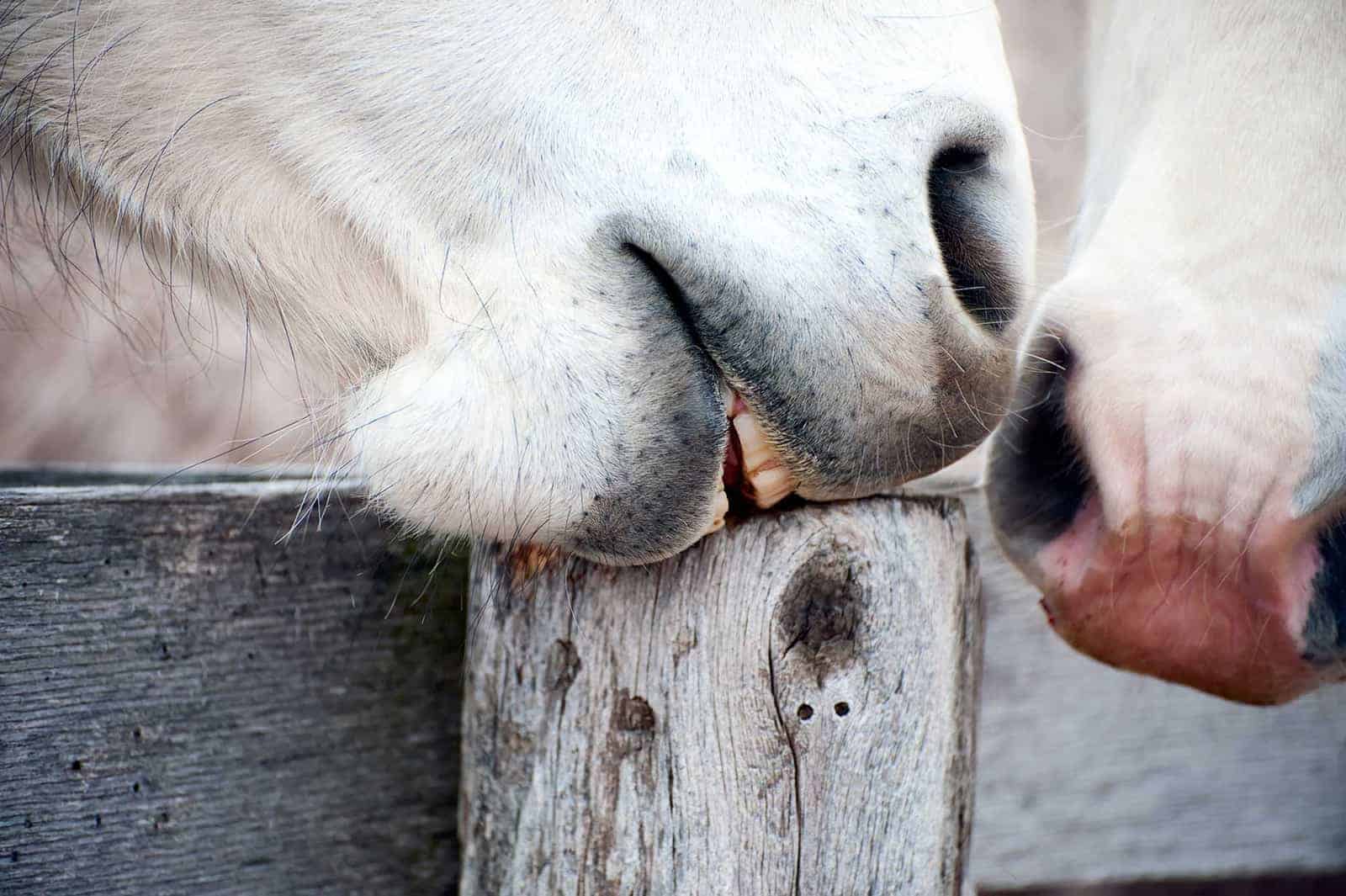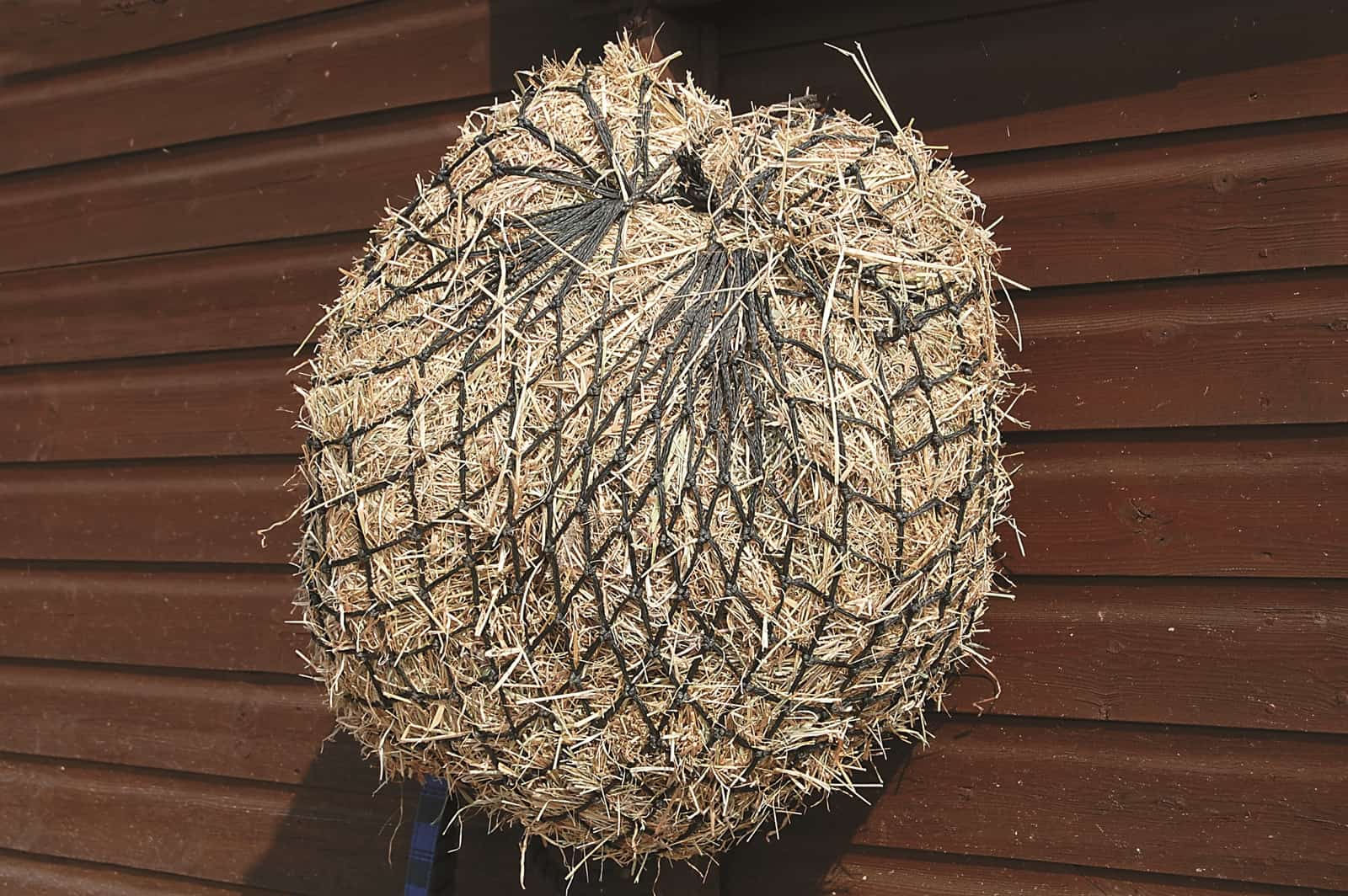Why Does My Horse Chew Wood?
- Posted by Clair Thunes, PhD

—JW, Kentucky
A: Wood chewing can be due to several factors, but I think you’re right that most likely, in this case, it’s because of having her forage intake reduced due to not being turned out on pasture or due to confinement. I actually experienced this myself a number of years ago. The horse I managed was typically turned out for four hours in the morning, but after heavy rain his pasture was under water and not suitable for turnout. As a mustang he was an easy keeper and the pasture was pretty sparse, so we didn’t make any dietary changes thinking he wasn’t getting much in turn-out anyway. He started to eat his shavings and manure. We increased his hay by half a flake (about 3 pounds) and he stopped eating the shavings.
This was a good reminder to me that horses are often consuming more in pasture, even a sparse pasture, than we realize. When you remove pasture access, you might need to make additional management changes.

Because she’s an easy keeper, you should already be feeding her hay with a lower nutritional quality. That should reduce the risk of undesired weight gain even if you increase her intake. You might also want to consider using a slow feeder for your hay so she takes longer to eat her ration. Depending on what space she is kept in, it might be possible to have a couple of these spread out to encourage her to walk around.
If you increase her hay intake and find that she does indeed gain weight, you might want to reconsider the grain/concentrate in her diet. I’m not sure what kind of grain you are feeding or exactly how much she’s getting, but this will be an added source of calories that could be replaced with forage. If your goal is for the grain to provide a source of vitamins and minerals not covered by the forage in the ration, you might look for a ration balancing supplement. These often have very small 3- to 4-ounce-per-day serving sizes and add fewer calories than the ration balancing feeds.

Written by:
Clair Thunes, PhD
Related Articles
Stay on top of the most recent Horse Health news with
















8 Responses
give them a jolly ball
we have a gelding just like that he sicks win and then when I pick up his feet he almost collapses
they may be board they may need like a jolly ball to play with to keep them happy
My horses are turned out 24/7, they take the bark off trees. They get grain twice a day and supplements. They usually do this spring then fall. Are they missing something in there diets?
I have two yearlings in a large paddock with plenty of grass, they also get hay in the morning and grain at night. They are always chewing the fence, so I don’t believe any of what is written above, I think the correct answer is we don’t know why they do it they just do.
What is the answer if the horse is turned out about 14 hrs a day on good pasture and still chooses to eat the fence?
Chew
I have a wind sucker. He doesn’t but will suck wind on anything. He can collapse the pipe on corral panels. Previous owner said he learned it from his dam. Tried everything to get him to stop but have found mother that works . Even hay in a slow feeder. He will stop eating and go find something to suck wind on. I need to sell him and my other gelding but I know this will be an issue. Any suggestions?
Muriel Remar